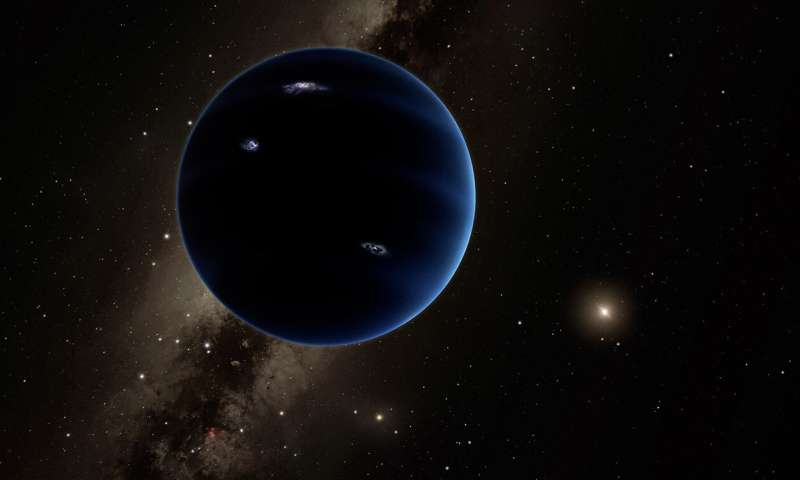HOME
Could Planet 9 be a primordial black hole?

For several years, astronomers and cosmologists have theorized about the existence of an additional planet with a mass 10 times greater than that of Earth, situated in the outermost regions of the solar system. This hypothetical planet, dubbed Planet 9, could be the source of gravitational effects that would explain the unusual patterns in the orbits of trans-Neptunian objects (TNOs) highlighted by existing cosmological data. TNOs are celestial bodies that orbit the sun and are located beyond Neptune.
Building on studies conducted over the past few years, Jakub Scholtz and James Unwin, two researchers at Durham University and the University of Illinois at Chicago, have recently carried out an investigation exploring the possibility that Planet 9 is a primordial black hole. Their paper, published in Physical Review Letters, hypothesizes that the anomalous orbits of TNOs and an excess in microlensing events observed in the 5-year Optical Gravitational Lensing Experiment (OGLE) dataset could be simultaneously explained by the existence of a specific population of astrophysical bodies (one of which would be Planet 9). More specifically, it introduces the idea that Planet 9 and the rest of these bodies may be primordial black holes (PBHs).
"Our work started when James and his wife Laura went to the Chicago planetarium and saw a short documentary about Planet 9," Jakub Scholtz, one of the researchers who carried out the study, told Phys.org. "It must have captured James' attention, because he called me the next day and we started figuring out whether there is any other object that could be out there mimicking a planet. We came up with a number of fun scenarios: Bose stars, ultra-compact dark matter halos, primordial black holes—and several other possibilities."
A few months after they started exploring hypotheses about the nature of Planet 9, another research team at the University of Tokyo reanalyzed data collected as part of the OGLE experiment. OGLE is a research project carried out at the University of Warsaw that entailed capturing images of the sky using advanced telescopes over long periods of time.
News Source